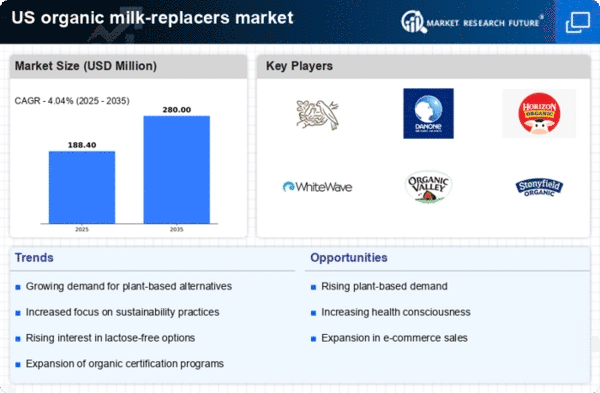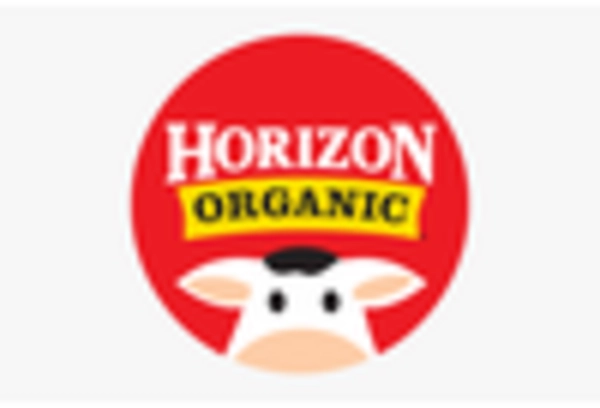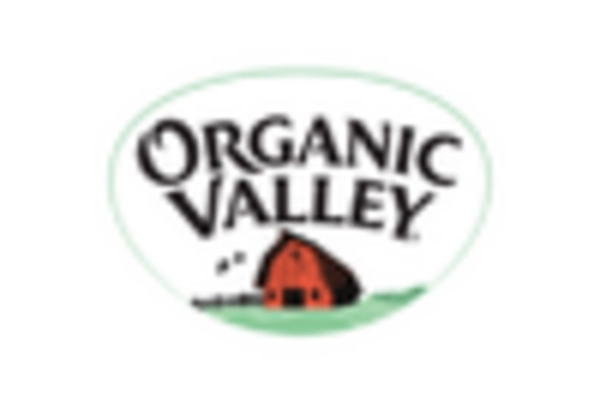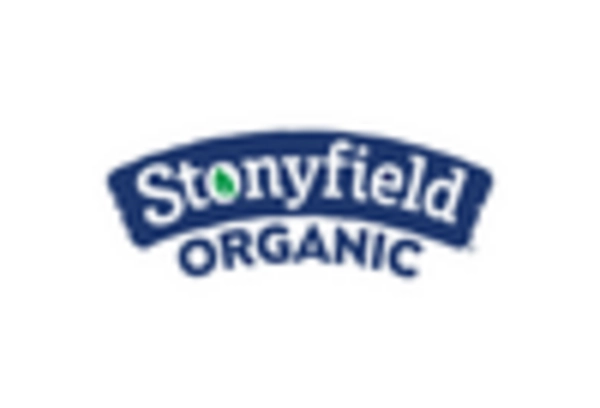Expansion of E-commerce Platforms
The expansion of e-commerce platforms is transforming the organic milk-replacers market by providing consumers with greater access to a variety of products. Online shopping has become increasingly popular, particularly among younger demographics who prefer the convenience of purchasing groceries online. Recent data indicates that online sales of organic products, including milk-replacers, have surged by 25% in the past year. This trend suggests that the organic milk-replacers market is poised for growth as e-commerce continues to evolve, allowing consumers to easily explore and purchase a wider range of organic milk-replacers from the comfort of their homes.
Innovations in Product Development
Innovations in product development play a crucial role in shaping the organic milk-replacers market. Manufacturers are increasingly investing in research and development to create diverse and appealing products that cater to various dietary preferences. For instance, the introduction of fortified organic milk-replacers enriched with vitamins and minerals has gained traction among health-conscious consumers. Market data indicates that the segment of fortified organic milk-replacers is projected to grow by 20% over the next five years. This focus on innovation not only enhances product offerings but also attracts a broader consumer base, thereby driving growth in the organic milk-replacers market.
Health Consciousness Among Consumers
The organic milk-replacers market experiences a notable surge in demand driven by the increasing health consciousness among consumers. As individuals become more aware of the nutritional benefits associated with organic products, they are more inclined to seek alternatives to traditional dairy. This shift is reflected in market data, indicating that organic milk-replacers have seen a growth rate of approximately 15% annually in recent years. Consumers are particularly drawn to the perceived health benefits, such as lower cholesterol levels and enhanced digestive health, which organic milk-replacers are believed to offer. This trend suggests that the organic milk-replacers market is likely to continue expanding as more individuals prioritize health in their dietary choices..
Environmental Awareness and Sustainability
Environmental awareness and sustainability concerns are increasingly shaping consumer preferences in the organic milk-replacers market. As consumers become more informed about the environmental impact of dairy farming, they are gravitating towards organic alternatives that are perceived as more sustainable. This trend is supported by data showing that 70% of consumers are willing to pay a premium for products that align with their environmental values. The organic milk-replacers market stands to benefit from this shift, as it offers products that are often produced with lower carbon footprints and sustainable farming practices. This alignment with consumer values is likely to drive further growth in the market.
Rising Vegan and Lactose-Intolerant Populations
The organic milk-replacers market is significantly influenced by the rising populations of vegans and individuals with lactose intolerance. As awareness of dietary restrictions increases, more consumers are seeking plant-based alternatives to dairy products. Recent statistics suggest that approximately 30% of the US population is either lactose intolerant or actively chooses a vegan lifestyle. This demographic shift indicates a substantial market opportunity for organic milk-replacers, as these products provide suitable options for those avoiding traditional dairy. Consequently, the organic milk-replacers market is likely to expand as it caters to the needs of these growing consumer segments.
















